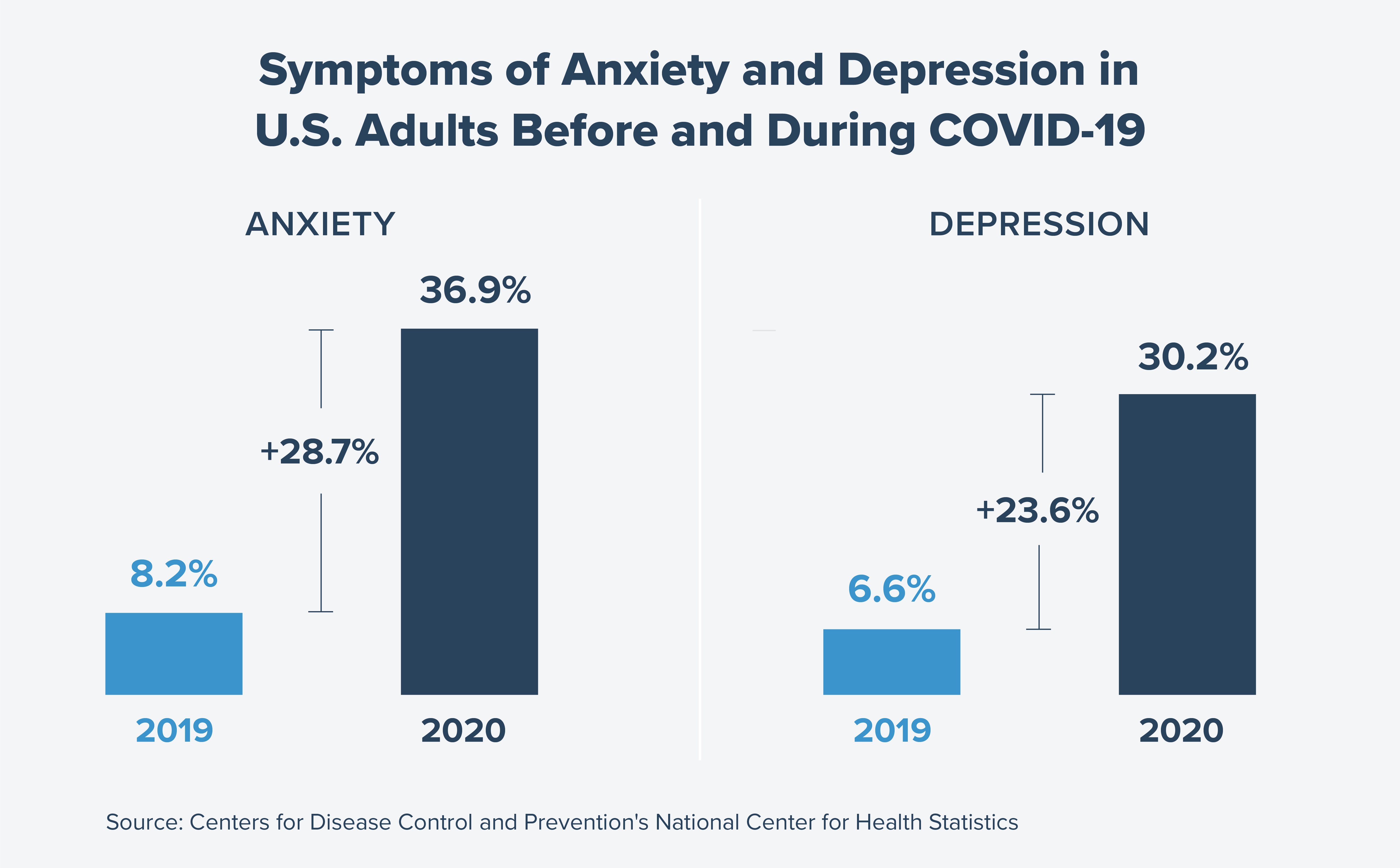Reflecting on Mental Health Awareness Month
Reflecting on Mental Health Awareness Month

Reflecting on Mental Health Awareness Month.
Reflecting on Mental Health Awareness Month

Reflecting on Mental Health Awareness Month.
As communities around the world continue to grapple with the impact of COVID-19, the importance of furthering our understanding of the impact on our mental health is undeniable.
This May, we pause to recognize Mental Health Awareness Month, a time to reflect on those patients, including myself, who are impacted by mental illness and mental health disorders. This month is also an opportunity to educate ourselves and our communities about what it means to face a mental illness.
Mental illnesses represent a wide spectrum of conditions including, for example, depression, bipolar disorder, schizophrenia, substance use disorder, anxiety disorders, eating disorders, obsessive compulsive disorder and post-traumatic stress disorder. Each of these illnesses often vary in degree of severity, ranging from mild to moderate to severe (substantially interfering with major life activities) and may also occur together.
As we look at the impact the COVID-19 pandemic has had on mental health, prior research confirms large-scale trauma can significantly impact individuals’ mental health. In the 2003 SARS epidemic, people directly affected—particularly health care workers—showed significantly higher rates of burnout and posttraumatic stress in the months following the outbreak, according to the U.S. Centers for Disease Control and Prevention (CDC). Similar changes have been observed in communities affected by natural disasters or economic recessions.

Over the past year, the COVID-19 pandemic has resulted in major life changes that can exacerbate many risk factors for mental illness, including stress and job loss, financial challenges, illness and death of family members and friends, and social isolation. Recent research conducted by the CDC’s National Center for Health Statistics (NCHS) indicates a three- to four-fold increase in symptoms of depression and a four-fold increase in symptoms of anxiety in the United States during the pandemic (April- December 2020) compared to prior to COVID-19. In particular:
As noted by Dr. Doug Williamson, Senior Vice President, United States R&D, and Global Deputy Chief Medical Officer at Lundbeck, “For people who live with existing mental health conditions such as depression, bipolar disorder or schizophrenia or neurological conditions such as migraine, increased stress could lead to a relapse or serious worsening of symptoms.” This is all the more compounded by the pandemic which has impacted lives of patients around the globe.
Yet these sobering statistics indicate that these challenges existed long before COVID-19. In recent years, rates of mental illness, which affects one in five people, or 46.6 million Americans, have been increasing, especially among young adults. Moreover, significant disparities exist: According to the U.S. Department of Health and Human Services, communities of color are less likely to receive diagnosis and treatment for their mental illness, have less access to mental health services and often receive a lower quality of mental health care.
Recognizing the urgent need for solutions, PhRMA member companies have remained committed to addressing these challenges by applying the latest scientific knowledge to researching and developing new treatments for a wide range of conditions, including depression, bipolar disorder, schizophrenia, substance use disorder, anxiety disorders, eating disorders, obsessive compulsive disorder and post-traumatic stress disorder among others. A range of existing treatment approaches are available to patients to help improve their quality of life. Looking to the future, according to updated findings from a PhRMA report on medicines in development, there are more than 140 treatments currently in development for mental illness to address the ongoing unmet medical need.i
Biopharmaceutical companies also are advancing research into the underlying causes of mental illnesses and pursuing biomarkers that could help clinicians identify mental health disorders earlier. Understanding the origin and underlying disease pathology of mental illness could also lead to more targeted and effective treatments.
Throughout the last year, mental illness R&D efforts were maintained, despite the challenges from COVID-19, as biopharmaceutical companies continued to advance clinical research, as well as raise awareness of the mental health challenges faced by health care workers and communities across the United States.
Mental illnesses can be among the most challenging types of conditions to study, due to the extremely diverse nature of these diseases, which can often require personalized treatment protocols and patients sometimes trying several medicines before finding the right approach. Yet it is vital we continue to pursue new solutions to help address the growing public health toll, which costs the U.S. more than $317 billion annually in lost wages, health care expenditures and disability benefits. Equally, it is crucial that the policy environment continue to support investment in basic disease research and new treatment discovery, which faces high levels of risk.
This year, Mental Health Awareness Month aims to amplify the message of “You Are Not Alone,” a particularly poignant reminder after a year of unprecedented challenges. In addition to increased awareness of the impacts of mental health, research into treating mental health disorders is a priority for the biopharmaceutical industry, both now and well into the future as we fight stigma and advocate for policies that support people with mental illness and their families.
i AdisInsights, April 19, 2021